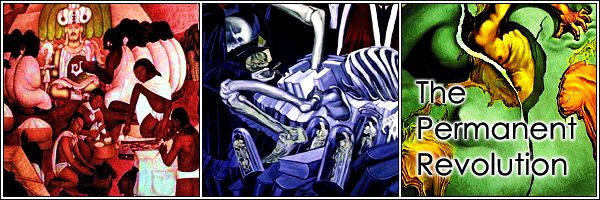Tactical premonitions...
"[W]hen it had to be decided whether to accept SaddamHussein's surrender and to ceasefire, or to refuse it and push on until Baghdad, the President [Mitterrand] clearly told George Bush [Senior] that he was for the first solution. His reasons? To not make the Iraqi leader a marty in the eyes of an Arab public opinion already convinced of the unfairness of the Westerners. To not throw ourselves into an urban guerrilla war with unpredictable consequences. To not play with Iraq's breaking up. Indeed, the elimination of Saddam Hussein would lead to a Kurdish declaration of independence and, as a consequence, wars implicating Turkey, Syria, Iran, as well as Iranian maneuvers into Iraq's Shiite South." - Hubert Vedrine (former French foreign minister) in Les Mondes de Francois Mitterrand (1996) p. 537
I'm so used these days to being cynical about politicians and assuming that every argument they makeis a tactical one. That is, they have committed themselves to this or that position, so they'll use every known argument to back it up, even when new information emerges or there's simply a lot of uncertainty involved. Politicians will use completely contradictory arguments over their careers. Yet, I'm struck by how prescient some arguments can be.
France opposed pushing to Baghdad in Gulf War I for basically selfish reasons, among others, France didn't want US domination of region or to abandon their profitable relationship with Saddam (a history of arms and nuclear deals, as well as unpaid debts towards France). France had tactical reasons to argue against gong to Baghdad. Nonethless all those arguments seem remarkably prescient, every one of Vedrine's predictions has become big news: a martyred Saddam, urban guerrilla war, Iraq's breakup, Iranian Shia influence. The only exception is the lack of an independent Kurdistan (we may have to wait a little longer).
It seems the arguments that are made for tactical reasons can nonetheless be perfectly true!
I'm so used these days to being cynical about politicians and assuming that every argument they makeis a tactical one. That is, they have committed themselves to this or that position, so they'll use every known argument to back it up, even when new information emerges or there's simply a lot of uncertainty involved. Politicians will use completely contradictory arguments over their careers. Yet, I'm struck by how prescient some arguments can be.
France opposed pushing to Baghdad in Gulf War I for basically selfish reasons, among others, France didn't want US domination of region or to abandon their profitable relationship with Saddam (a history of arms and nuclear deals, as well as unpaid debts towards France). France had tactical reasons to argue against gong to Baghdad. Nonethless all those arguments seem remarkably prescient, every one of Vedrine's predictions has become big news: a martyred Saddam, urban guerrilla war, Iraq's breakup, Iranian Shia influence. The only exception is the lack of an independent Kurdistan (we may have to wait a little longer).
It seems the arguments that are made for tactical reasons can nonetheless be perfectly true!





